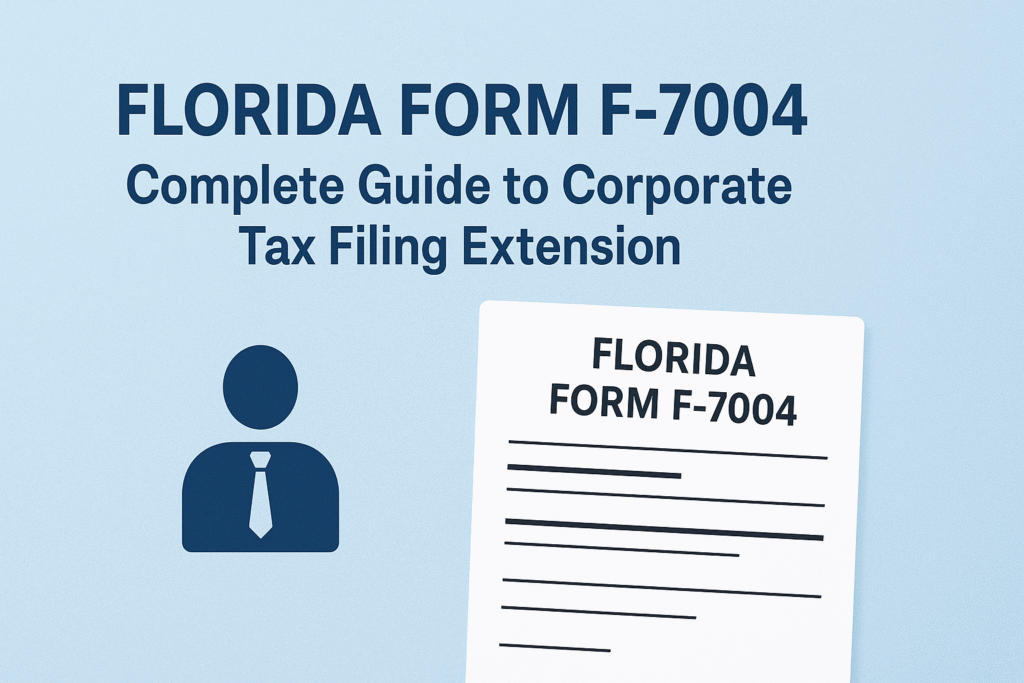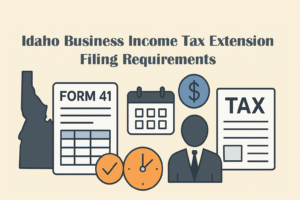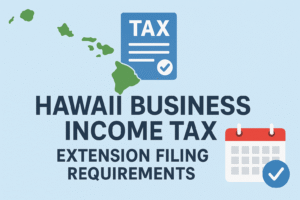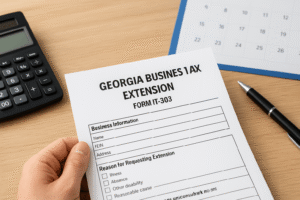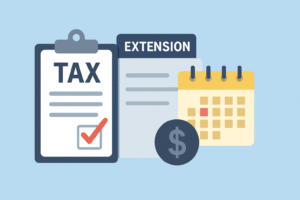Businesses operating in Florida that cannot meet the corporate income tax filing deadline can request extra time by filing Form F-7004 — the official “Application for Extension of Time to File Florida Corporate Income/Franchise Tax Return.”
This guide covers everything business owners, tax professionals, and corporate filers need to know about Form F-7004 — including who should file, what returns it extends, when to file, how to complete it correctly, and where to submit it.
What Is Form F-7004?
Florida Form F-7004 is issued by the Florida Department of Revenue (FDOR) to allow corporations and other eligible entities to request an automatic extension of time to file their Florida Corporate Income/Franchise Tax Return (Form F-1120 or Form F-1120A).
It’s important to note that Form F-7004 only extends the time to file the return, not the time to pay any tax due. Businesses must still estimate and pay their expected Florida corporate income/franchise tax by the original due date to avoid late-payment penalties and interest.
If you’ve already filed a federal Form 7004 with the IRS for a corporate income tax extension, Florida generally requires you to also file Form F-7004 separately to extend your state return.
Who Must File Form F-7004?
Any business entity that is required to file a Florida corporate income/franchise tax return and needs additional time to file can submit Form F-7004. This includes:
- C Corporations required to file Form F-1120
- S Corporations with federal taxable income subject to the Florida franchise tax
- Limited Liability Companies (LLCs) classified as corporations for federal tax purposes
- Tax-exempt organizations with unrelated business taxable income required to file Form F-1120A
- An LLC classified as a partnership for Florida and federal income tax purposes must file a Florida Partnership Information Return (Form F-1065) if one or more of its owners is a corporation.
You should file Form F-7004 if:
- You cannot prepare your Florida return by the original deadline (usually the same as your federal deadline), and
- You expect to owe Florida corporate income/franchise tax.
If your corporation owes no tax, you are not required to file Form F-7004 — the state will grant an automatic extension if your federal extension (Form 7004) is accepted and no payment is due to Florida.
However, if any Florida tax liability exists, Form F-7004 must be filed with payment by the original due date.
What Type of Business Tax Returns Can Be Extended Using Form F-7004?
Form F-7004 applies to entities that file one of the following Florida corporate returns:
- Form F-1120 — Florida Corporate Income/Franchise Tax Return
- Form F-1065 — Florida Partnership Information Return
The extension applies only to the Florida return — it does not automatically extend any local or federal filing obligations.
When Is the Deadline to File Form F-7004?
The Form F-7004 filing deadline matches the original due date of your Florida corporate income tax return.
For calendar-year filers, this is typically:
- May 1 following the close of the taxable year.
For fiscal-year filers, the due date is the first day of the 5th month after the close of the fiscal year.
Extension Period
Form F-7004 grants an automatic 6-month extension to file your return.
For example:
- A corporation with a year ending December 31, 2025, must file its Florida return (Form F-1120) by May 1, 2026.
- By filing Form F-7004 on or before May 1, 2026, it extends the filing due date to November 1, 2026.
Important
Even though you get six months to file, any tax due must still be paid by May 1, 2026. Payments made after that date may incur penalty and interest.
How to Complete Form F-7004
Form F-7004 is straightforward, but accuracy is essential to avoid rejection. Here’s a step-by-step breakdown:
Part 1 – Identification
- Enter the legal name of your corporation (exactly as it appears on your federal return) and contact details.
- Provide the Florida Corporate Income Tax Account Number (or FEIN if newly registered).
Part 2 – Tax Year
- Indicate the beginning and ending dates of the tax year.
- Confirm whether it’s a calendar year or fiscal year.
Part 3 – Payment Information
- Calculate your estimated tax liability for the year.
- Subtract any estimated payments or credits already made.
- The remaining balance is the amount due with Form F-7004.
Part 4 – Signatur
- The form must be signed by an authorized corporate officer or duly authorized representative.
If filing electronically, the signature is digital via the FDOR e-file system.
How to File Form F-7004
You can file Form F-7004 either electronically or by paper mail, but electronic filing is preferred and often required for corporations with assets of $10 million or more.
1. Electronic Filing
- File via the Florida Department of Revenue’s e-Services portal:
https://floridarevenue.com/taxes/eservices - Log in or register for an e-Services account.
- Select “Corporate Income Tax – File Extension (Form F-7004)”.
- Submit the form and make payment electronically using ACH or EFT.
Electronic filing ensures immediate confirmation and reduces processing errors.
2. Paper Filing
If filing on paper, download the current form from:
https://floridarevenue.com/forms/Pages/current_year.aspx
Attach a check or money order payable to Florida Department of Revenue and mail it to:
Florida Department of Revenue
5050 W Tennessee St.
Tallahassee, FL 32399-0135
Always include your FEIN and tax year on the check to ensure proper credit.
Key Points and Reminders
- Form F-7004 must be filed on or before your original Florida return due date.
- The extension is 6 months, not an extension of time to pay.
- Pay all estimated tax due by the original deadline to avoid penalties.
- Electronic filing is the fastest and most accurate method.
- Retain your confirmation or acknowledgment from FDOR for your records.
Frequently Asked Questions (FAQs)
1. Does Form F-7004 extend the time to pay Florida corporate income tax?
No. The extension only applies to filing the return. Any tax due must still be paid by the original due date.
2. How long is the extension granted by Form F-7004?
Up to 6 months from the original due date of your return.
3. Can I file Form F-7004 if I already filed a federal Form 7004?
Yes. The Florida extension is separate from the federal one. You must file Form F-7004 even if you’ve already obtained a federal extension.
4. What happens if I file Form F-7004 late?
A late extension is invalid, and you may face late-filing penalties and interest on unpaid taxes.
5. Can I e-file Form F-7004 through my tax preparer?
Yes. Most professional tax software supports electronic filing of the Florida extension.
Conclusion
Form F-7004 is a vital compliance tool for businesses in Florida that need additional time to prepare their corporate income tax returns. Filing this form promptly — and paying any estimated tax due — helps corporations avoid penalties and maintain good standing with the Florida Department of Revenue.
Whether you’re managing a large corporation or a small Florida-based business, timely submission of Form F-7004 ensures your operations remain compliant and stress-free during tax season.

